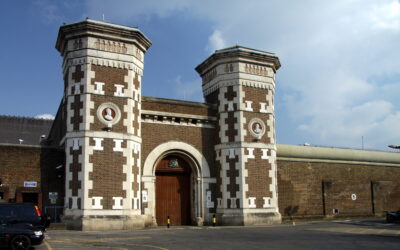
Image credit: John Morgan.
The old rule was that once a jury had retired to consider its verdict, no further evidence could be adduced.
The rule was stated in these terms:
“… The jury may not when they have once retired to consider their verdict be given any additional evidence, any additional matter or material to assist them. They can come back and ask the judge to repeat for their benefit evidence which has been given, but they cannot come back and ask for anything new and the judge must not allow them to have anything new.”
Therefore, it was crucial that all parties called such evidence as they wished to place before the jury so as not to risk a situation where the jury raised a predictable query that could not be answered later.
In 2021 the Court of Appeal revisited this rule.
The appellant was convicted of attempt thefts, he was alleged to be one of two offenders who used a BMW to try and force open cash machines. He was also convicted of causing two explosions and thefts, again involving cash machines. His DNA was found on a glove and a cigarette lighter, each item found at a different scene.
The case was circumstantial and included that he was in possession of the BMW on arrest, tools found in the boot were similar to those shown on CCTV, the safe door to a machine was also in the boot and the prosecution relied on the DNA evidence.
Leave to appeal was granted as it was agreed it was arguable that:
“…further evidence from the forensic scientists’ statements over and above that contained in the agreed facts should not have been given to the jury after retirement and that this may have affected the safety of the convictions. We therefore think it right that this matter should be considered by the full court, which can also decide whether to give further guidance on this area of procedure.”
Following questions from the jury, additional narrative was given on the issue of secondary transfer. The trial judge acted on the basis there was no longer a firm rule which prohibited him doing what he accepted was the provision of additional material to a jury after it had retired.
The Court of Appeal held that it is likely that new information will only be found to be in the interests of justice at that very late stage in the case on very rare occasions and where in particular:
1. It answers a question asked by the jury;
2. It is neutral or at least incontrovertible; and
3. It is clear that a defendant is not in any way disadvantaged by the stage at which it is admitted.
Whilst it is clear that the Court of Appeal is far from encouraging this practice, it is helpful to note that what was perceived to be an absolute rule is no longer.
How can we help?
We ensure we keep up to date with any changes in legislation and case law so that we are always best placed to advise you properly. If you would like to discuss any aspect of your case, please contact any member of our vastly experienced Criminal Defence team, for assistance with any criminal law related matter.
–
Mr John Stokes (John.Stokes@danielwoodman.co.uk),
Miss Sarah Turland (Sarah.Turland@danielwoodman.co.uk),
Mr Anthony Pearce (Anthony.Pearce@danielwoodman.co.uk) or
Mr Daniel Woodman (Daniel.Woodman@danielwoodman.co.uk).









